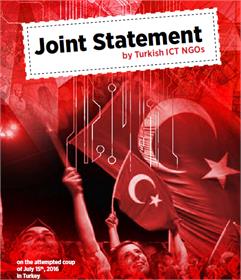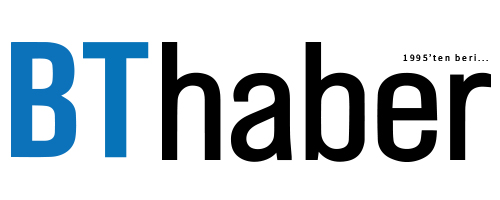Joint Statement by Turkish ICT NGOs / Bilişim STK'larından ortak bildiri


Turkey’s ICT sector is growing four times as fast. In 2016, we anticipate growth of 15-20% in TL terms and between 5-9% in USD terms, fuelled by R&D investments and innovation. On behalf of all Information Technology and elecommunications NGOs in Turkey dedicated to advancing Turkey’s transformation into an information society, we would like to express our vehement opposition to the attempted coup that took place on July 15th in Turkey and steadfast commitment to the rule of law, fundamental freedoms and human rights. On the evening of July 15th, a small group within the Turkish Armed Forces sought to seize control of several key institutions and structures in Ankara and Istanbul but failed, thanks to the opposition of the vast majority of armed forces and powerful response of people and institutions from every segment of society, who acted in unity to defend Turkey’s democracy.
Sadly, during the coup attempt over 200 people were killed, more than 2,100 others were injured and many government buildings, including the Turkish Parliament and Presidential Palace, were damaged. The faction behind the failed coup was formed
by soldiers linked to the terrorist organization (FETÖ) led by the Turkish theologian and preacher Fethullah Gülen, who resides in the United States. Dating back to the 1960s, FETÖ established a strong base in Turkey in the 1980s and then expanded globally in the 1990s through educational initiatives in many countries. FETÖ has long been under investigation in Turkey for engaging in a wide-ranging and covert efforts to infiltrate Turkey’s government – including law enforcement and the judiciary – as well as media and business with the goal of undermining the constitutional order and democratically elected system of government. Fortunately, the attempted coup has not only failed to sabotage Turkey’s democracy but also its strong economy, which responded with confidence to the rapid restoration of security and unified stand of the public, political parties, NGOs and armed forces in support of the government. Policy-makers, regulators, and all economic actors in Turkey have contributed actively to the process of normalization through broad-ranging measures aimed at stabilizing markets and reassuring investors. Looking ahead, we are confident that Turkey will continue to push forward with economic and structural reforms aimed at propelling our economy towards the top echelon of high-income nations. Without a doubt, fiscal discipline and a strong
banking sector will continue to be a top priority during the implementation of these reforms. As the leading associations of Turkey’s ICT industry, we are confident that Turkey will emerge from this unfortunate period of its history even stronge Today, Turkey is the world’s 18th largest economy, fully integrated with global markets. Driven by a robust domestic market, Turkey’s economy has grown faster than many of the world’s leading economies over the last 14 years. During this period, real GDP rose by 4.7 percent per year on average while GDP per capita more than tripled. In the first quarter of 2016 alone, Turkey outperformed many emerging and developed economies with a growth rate of 4.8 percent, positioning it second after Malta among OECD economies and fourth after India, China, and Indonesia in the G20.
Turkey’s ICT sector is growing four times as fast. In 2015, the industry grew 18% to TL 83.1 billion. Information technologies, which accounts for 33% of the entire industry, grew 19% last year to TL 27.4 billion. In 2016, we anticipate growth of 15-20% in TL terms and between 5-9% in USD terms, fuelled by R&D investments and innovation. Importantly, recent events in Turkey have again demonstrated the strong impact of information technologies and social media on social dynamics and the course of historic events. Just as those involved in the coup attempt used ICT to communicate with each other, so were they averted by counter ICT measures, including the President of Turkey’s use of Facetime very soon after the coup began to raise public morale and resistance. Through the unified and energetic opposition to armed intervention in its democratic processes, Turkey has clearly proven its nationwide commitment to democracy. Now, as members of Turkey’s Information and Communication Technologies sector, we will continue to support all efforts to strengthen further the system of democratic government and rule of law we all have defended.










